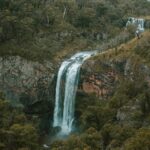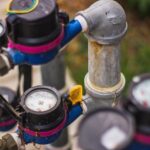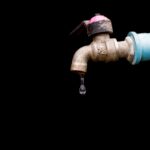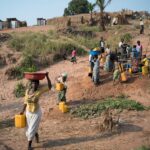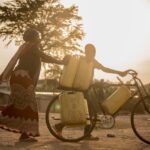Boreholes and Wells – Are They Enough to Solve Nigeria’s Water Crisis?
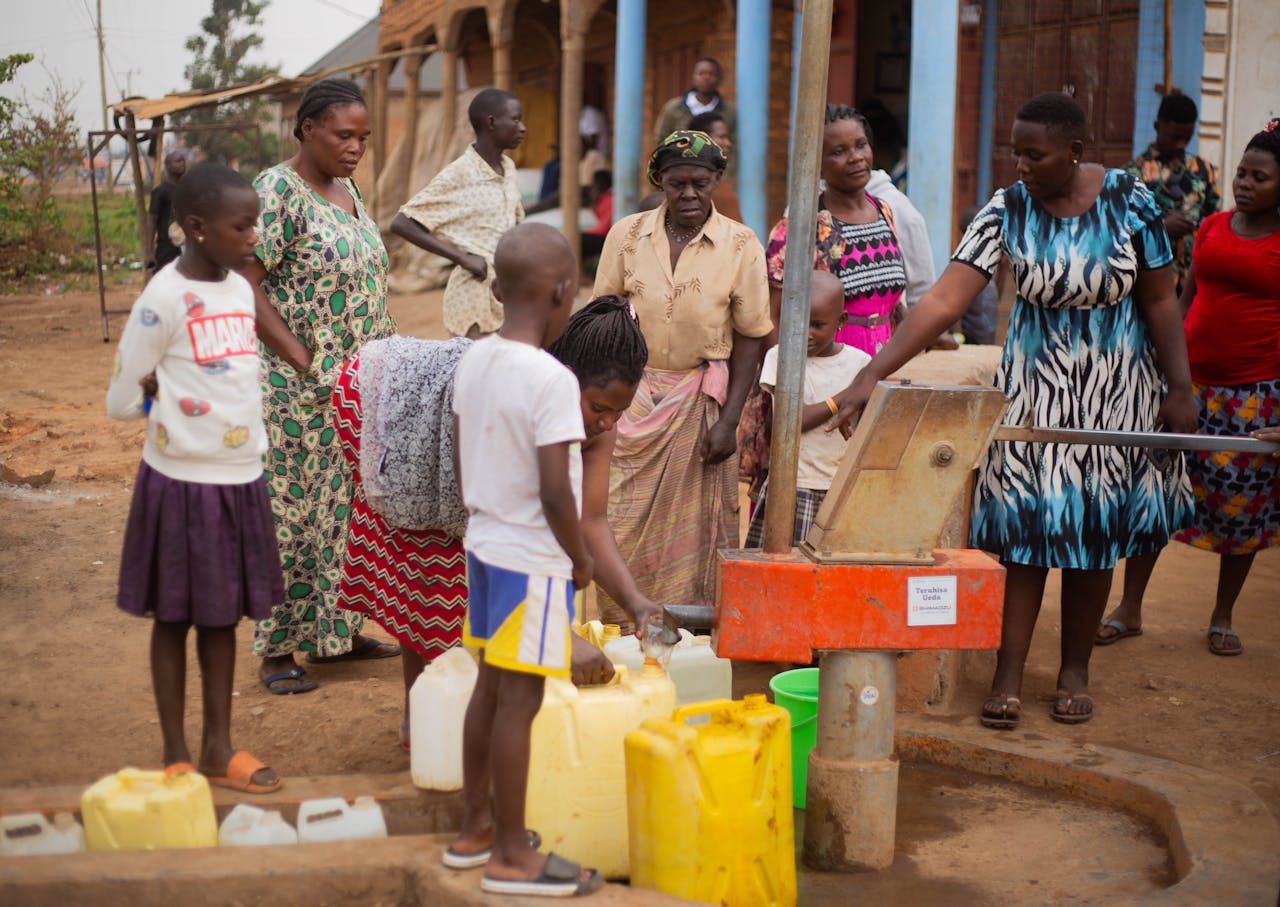
Nigeria faces a big water problem – many people can’t get clean water easily.
To fix this, many Nigerians have turned to boreholes and wells. These are holes drilled into the ground to reach water underneath. They’ve become a common sight, popping up in backyards, street corners, and village squares. But as more and more people rely on them, we need to ask: are these really the answer to Nigeria’s water problems?
Current State of Water Access in Nigeria
The water situation in Nigeria is a tale of two worlds. In big cities, some areas have pipes that bring water to homes and businesses. But these systems often don’t work well. Pipes leak, water quality is poor, and supply is unreliable.
In rural areas, the situation is terrible. Many villages have no piped water at all.
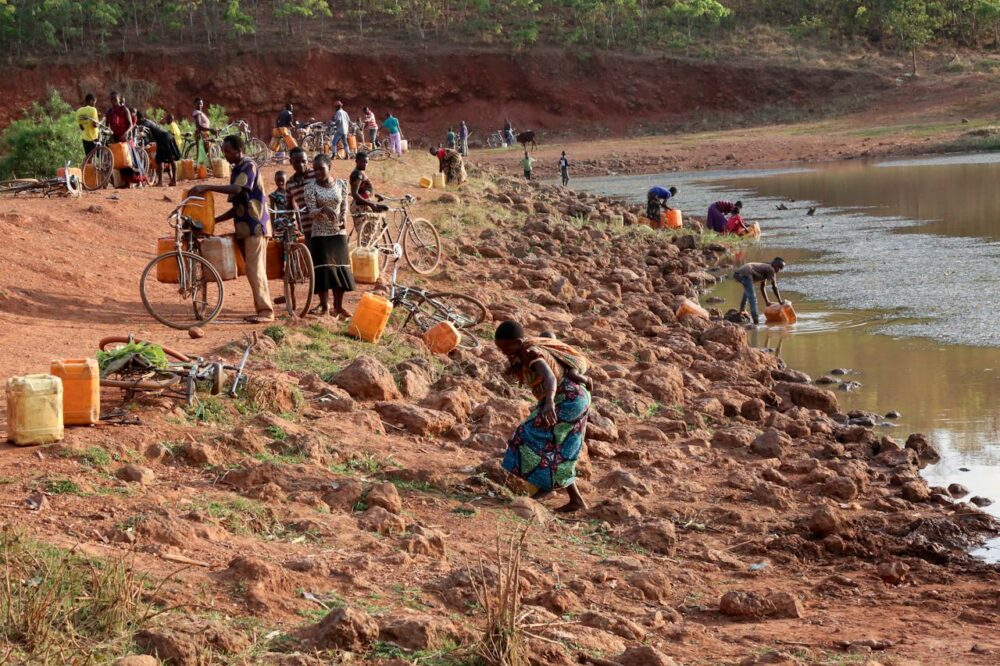
People often walk long distances to fetch water from streams or ponds. This water isn’t always clean and makes people sick.
That’s where boreholes and wells come in. In both cities and villages, they’ve become a go-to solution. Some are privately owned, others are shared by communities. They offer a way to get water close to home without relying on broken public systems.
Advantages of Boreholes and Wells
Boreholes and wells have some clear benefits. First, they provide water right where people need it. No more long walks carrying heavy buckets. This saves time and energy, especially for women and children who often do this work.
Another plus is that communities can manage these water sources themselves. They don’t have to wait for the government to fix faraway problems. If something goes wrong, local people can often fix it quickly.
Compared to building big water systems, drilling a borehole or digging a well can be cheaper to start with.
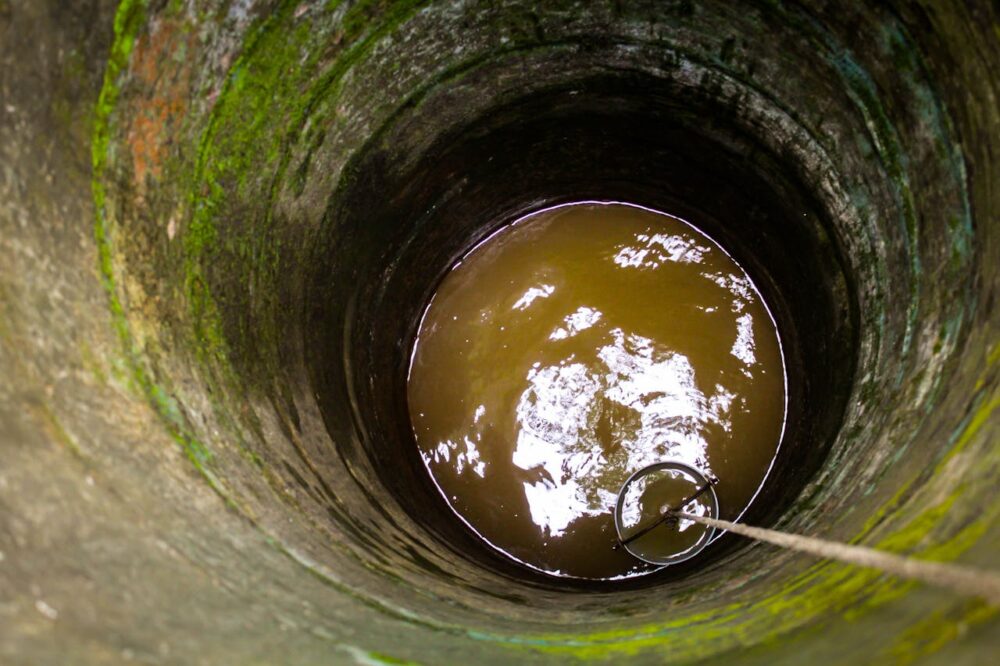
This makes it possible for more communities to get access to water, even with limited funds.
Limitations and Challenges
But boreholes and wells aren’t perfect solutions. One big worry is water quality. Not all groundwater is safe to drink. It can contain harmful chemicals or bacteria. Without proper testing and treatment, people might think they’re drinking clean water when they’re not.
There’s also the question of how long these sources will last. In some areas, so many boreholes have been drilled that the water table – the level of water underground – is dropping. This means wells might run dry, leaving people without water again.
Keeping boreholes and wells working isn’t always easy. Pumps break, wells can collapse, and fixing them requires skills and parts that aren’t always available locally. When a shared borehole breaks down, it can leave many families without water.
Lastly, not everyone can afford to drill their own borehole. This can create unfair situations where some people have easy access to water while others don’t.
Environmental Impact
Drilling lots of boreholes can harm the environment. When too much water is pumped out of the ground, it can cause problems. The land might start to sink, damaging buildings and roads. This is already happening in some parts of Nigeria.
There’s also a risk of polluting the groundwater. If boreholes aren’t built properly, surface pollution can seep into the water underground. Once an aquifer (underground water source) is contaminated, it’s very hard to clean up.
In coastal areas, overpumping can let saltwater creep into freshwater supplies. This makes the water undrinkable and can harm crops if used for farming.
Economic Considerations
At first glance, boreholes seem cheaper than building big water systems. But when you look closer, the picture changes. The cost of drilling, plus buying and running pumps, adds up. For many families, it’s a big expense.
Communities that rely on shared boreholes often have to collect money for repairs and fuel. This can be a burden, especially in poor areas. Sometimes, boreholes stop working because people can’t afford to maintain them.
On a larger scale, the spread of private boreholes affects the whole economy. It can make it harder to fund and run public water systems. Why would people pay for piped water if they already have a borehole? This creates a cycle that’s hard to break.
Health Implications
Clean water is crucial for good health, and this is where boreholes and wells can be a double-edged sword. When they provide clean water, they can dramatically improve health in a community. Waterborne diseases like diarrhea, which kill many children each year, can decrease.
However, not all borehole water is safe.
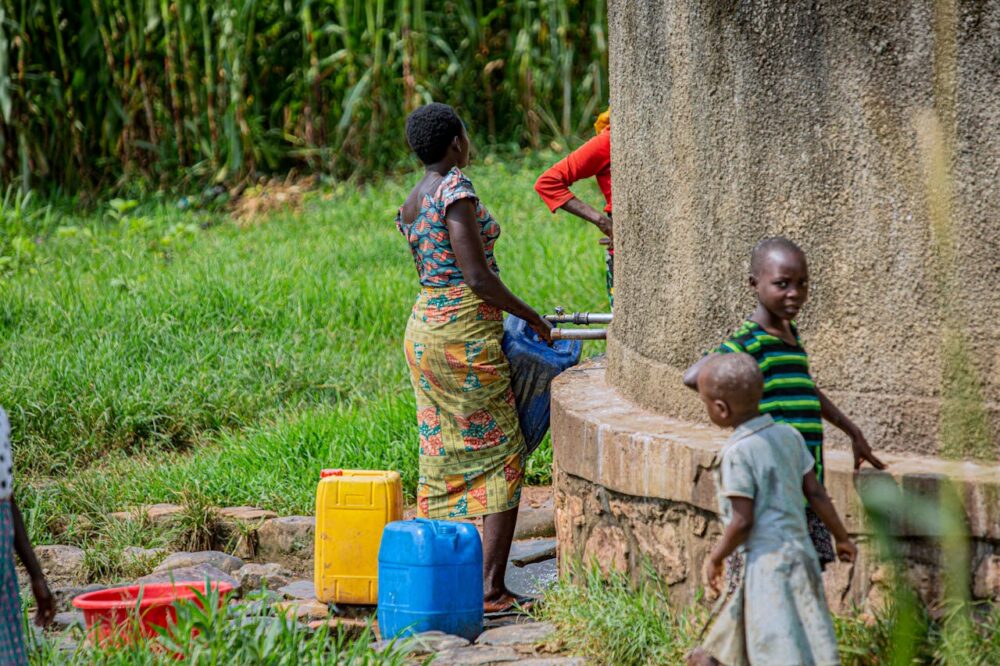
Without regular testing and treatment, it can contain harmful bacteria, viruses, or chemicals. People might think they’re drinking clean water when they’re actually at risk.
Comparing health outcomes between borehole users and those with access to treated, piped water shows mixed results. In areas with very poor water access, boreholes can be a big improvement. But they don’t match the health benefits of a well-managed, treated water supply.
The challenge is making sure borehole water stays safe over time. This requires ongoing testing and treatment, which doesn’t always happen. As a result, what starts as a solution to water access can sometimes create new health risks.
Regulatory Framework
Nigeria has rules about drilling boreholes and wells, but they often don’t work well in practice. The government says people need permits to drill, but many don’t bother getting them. This leads to a lot of uncontrolled drilling.
There are also rules about how deep boreholes should be and how far apart they should be placed. These rules are meant to protect the groundwater and make sure everyone has fair access. But without strong enforcement, many people ignore these guidelines.
The country needs better ways to oversee borehole drilling. This could include training more inspectors and making the permit process easier to follow. There’s also a need for clearer rules about water quality testing for private boreholes.
Alternative and Complementary Solutions
While boreholes and wells are common, they’re not the only way to improve water access. Some communities are trying other methods that work alongside or instead of boreholes.
Rainwater harvesting is gaining popularity. By collecting rainwater from roofs and storing it, people can have a clean water source for part of the year. This works especially well in areas with good rainfall.
Small-scale water treatment systems are another option. These can clean water from rivers or lakes, making it safe to drink. They’re often used in places where groundwater is hard to reach or of poor quality.
Some villages are setting up community-managed water points. These are like small water utilities run by local people. They can provide cleaner water than individual wells and spread the cost of maintenance across many households.
Case Studies
Looking at real examples helps us understand how boreholes and wells work in practice. In Enugu State, a project to drill boreholes in rural areas brought clean water to thousands of people. It succeeded because it involved local communities in managing the boreholes.
On the flip side, parts of Lagos have seen problems from too many boreholes. The ground has started sinking in some areas, damaging buildings. This shows what can happen when borehole drilling isn’t properly controlled.
Another interesting case is from a village in Kaduna State. They combined a borehole with a small solar-powered treatment system. This gives them cleaner water than a borehole alone, using local sunshine to power the treatment.
Technological Advancements
New technologies are changing how boreholes and wells are built and used. Modern drilling techniques can reach water more easily and create stronger, longer-lasting boreholes.
There are also new ways to check water quality. Simple test kits allow communities to check their water for common contaminants. Some projects are even using sensors that can send water-quality data to smartphones.
Solar-powered pumps are becoming more common. They’re easier to maintain than fuel-powered pumps and can work in areas without electricity. This makes boreholes more reliable and cheaper to run over time.
Social and Cultural Factors
How people think about water sources matters a lot. In some places, people trust borehole water more than other sources because they can see where it comes from. In other areas, there might be cultural beliefs about groundwater that affect how people use boreholes.
Traditional water management practices still play a role in many communities. Some villages have long-standing rules about sharing water sources. When new boreholes are drilled, they need to fit into these existing social systems.
The way water is collected can also have social impacts. In many places, fetching water is seen as women’s work. Boreholes closer to home can free up time for women and girls, allowing them to work, study, or rest.
The Role of Government and NGOs
The government has a big part to play in managing Nigeria’s water resources. There are national plans to improve water access, but progress has been slow. Some state governments are working with private companies to drill boreholes in rural areas.
Non-governmental organizations (NGOs) are also very active in this space. Many international and local groups fund borehole projects. They often provide not just the boreholes, but also training on maintenance and hygiene.
There’s growing interest in partnerships between the government, private sector, and NGOs. These partnerships can bring together money, expertise, and local knowledge to create more sustainable water solutions.
Future Outlook
Looking ahead, Nigeria’s need for clean water will only grow as the population increases. Boreholes and wells will likely remain an important part of the water supply, especially in areas waiting for larger water systems to be built.
The challenge will be managing groundwater use sustainably. This might mean stricter rules on borehole drilling combined with efforts to replenish groundwater through conservation and rainwater harvesting.
There’s also a push to develop more comprehensive water infrastructures. While this takes time, boreholes can serve as a bridge, providing water access in the meantime. The key will be finding the right balance between quick solutions like boreholes and long-term investments in larger water systems.
Conclusion
Boreholes and wells have helped millions of Nigerians get water, but they can’t solve the country’s water problems alone. While they provide quick relief, we need to think bigger and longer-term.
The evidence shows both good and bad sides of relying on boreholes. They bring water closer to homes and give communities control over their water supply. But they also raise concerns about groundwater depletion, water quality, and long-term costs.
At AquaMaya, we understand this balance. Our work in West Africa shows how boreholes can be part of a bigger solution when combined with proper planning, community involvement, and regular water quality testing.
Moving forward, Nigeria needs a mixed approach. This means:
- Better control over borehole drilling to protect groundwater
- More investment in large water systems that can serve many people
- Improved water quality testing and treatment
- Support for communities to maintain their water sources
- Protection of natural water sources like rivers and lakes
- Clear rules about water use and fair sharing
The goal isn’t to stop using boreholes and wells, but to use them wisely as part of a larger plan. Some areas might need more boreholes for now, while others should focus on different solutions.
Success will require everyone to play their part – government agencies, private companies, AquaMaya and other NGOs, and local communities. Together, building water systems that last and serve everyone fairly can be achieved.
The path to solving Nigeria’s water crisis won’t be quick or easy. But with careful planning and the right mix of solutions, including smart use of boreholes and wells, clean water can become a reality for all Nigerians.
Sources:
- https://www.sciencedirect.com/science/article/pii/S2214581823000010
- https://fmino.gov.ng/indiscriminate-boreholes-drilling-threat-to-underground-water-and-sustainable-development/
- https://www.frontiersin.org/journals/earth-science/articles/10.3389/feart.2021.600710/full
- https://biomedres.us/fulltexts/BJSTR.MS.ID.004093.php
- https://www.sciencedirect.com/topics/earth-and-planetary-sciences/rainwater-harvesting
- https://dailytrust.com/respite-for-kaduna-community-after-years-of-water-scarcity/

